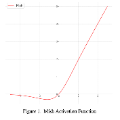We investigate data-driven forward-inverse problems for Yajima-Oikawa system by employing two technologies which improve the performance of PINN in deep physics-informed neural network (PINN), namely neuron-wise locally adaptive activation functions and L2 norm parameter regularization. In particular, we not only recover three different forms of vector rogue waves (RWs) in the forward problem of Yajima-Oikawa (YO) system, including bright-bright RWs, intermediatebright RWs and dark-bright RWs, but also study the inverse problem of YO system by data-driven with noise of different intensity. Compared with PINN method using only locally adaptive activation function, the PINN method with two strategies shows amazing robustness when studying the inverse problem of YO system with noisy training data, that is, the improved PINN model proposed by us has excellent noise immunity. The asymptotic analysis of wavenumber k and the MI analysis for YO system with unknown parameters are derived systematically by applying the linearized instability analysis on plane wave.
翻译:我们不仅在Yajima-Oikawa(YO)系统前期问题中恢复了三种不同的病媒流氓波(RWs),包括明亮的RWs、中间的RWs和深浅的RWs,而且还通过数据驱动和不同强度的噪音来研究YO系统的反向问题。 与仅使用本地适应激活功能的PINN方法相比,PINN方法与两种战略相比,在用噪音培训数据研究YO系统的反向问题时,我们提出的改进的PINN模型具有极好的噪音免疫力。对波数K的无症状分析以及具有未知参数的YO系统的MI分析是通过对平面波进行线性不稳定分析而系统地得出的。



